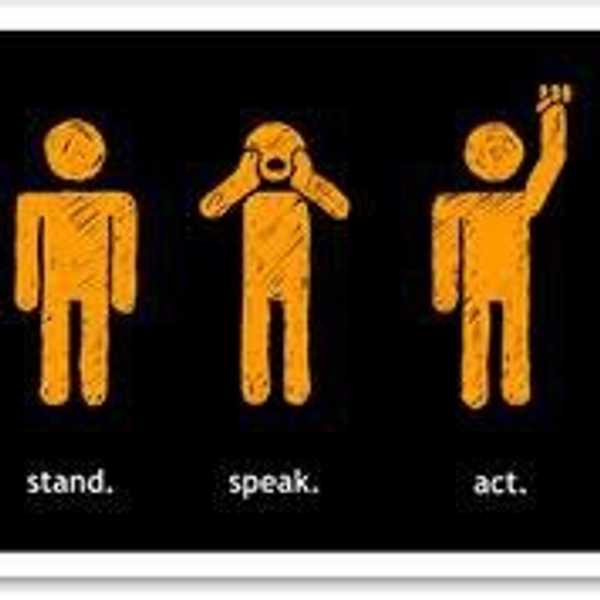I have always wondered what it would be like to wake up in a war zone. Fortunately, this has not yet happened in my lifetime and I hope it stays that way. My parents were not so lucky. They had to endure the worst genocide since the Holocaust. Most people, especially people my age, are unaware of the wretched events that took place in Bosnia and Herzegovina during the 1990s.
In order to understand what happened in Bosnia, there are a few things I must discuss. First of all, Bosnia was originally a part of Yugoslavia, a communist nation made up of three different nationalities: Bosnians, Croatians and Serbians. The three groups lived in harmony up until the death of Josip Broz Tito, the most notable leader of Yugoslavia, in 1980. As a result, other leaders were convinced they could take over, causing the three nationalities to clash more than ever before. The Bosnian war officially started in 1992 and did not end until 1995.
My parents grew up in the southern region of the country, also known as Herzegovina, in a tiny town named Stolac. When the war broke out, my parents were kicked out of their homes. Families were separated; the men and women were taken to different places, not knowing when they would see each other again. My mom, who was about 21 years old, was forced to live in a cramped house with dozens of other women and children, often without electricity and running water. Most of the men in my family, including my dad, were placed in concentration camps.
Before the war started, my parents had just begun dating. With snipers shooting night and day, it became dangerous to travel. They went months without seeing each other. The main way they kept in touch was by writing letters, which were delivered by the Red Cross. To this day, my mom still has those letters. One day, my dad wrote my mom saying he had a chance to escape to the United States and he wondered if she would come with him. At the time, both of their families were still in Bosnia and leaving them would be absolutely devastating.
Considering the circumstances, if there was a good chance you could succeed in getting out of the country, you were definitely going to take it. My mom decided to go and they boarded a plane for the very first time. In that moment, they had absolutely no idea they were about to spend the next 20 years of their lives in the United States.
On Aug. 8, 1994, my parents landed in Seattle, Washington. Walking through the airport with nothing but the IOM bags dangling from their hands (yes, my mom still has the bag, too), they were completely clueless of what awaited them. Everything was strikingly foreign: the sandwich bread at supermarkets that tasted sweet, the English language that made no sense and the strangers that smiled on the street. They lived in an apartment complex with other refugees, a home-away-from-home. Waking up at five in the morning, they would catch bus after bus until they finally arrived at their jobs. After a full year of working low-paying jobs, they bought their first car and drove it all the way to Georgia.
Exactly two years later, on Aug. 8, 1996, I was born in Atlanta, Ga. If that’s not fate, then I don’t know what is. Dubbed with my Bosnian name, there was no escaping the dozens of questions I got from my classmates and teachers. No one pronounced my name correctly, let alone knew where Bosnia was. To make things worse, the maps in the classrooms were outdated and only showed Yugoslavia, a country that no longer exists. I was born in the United States, but I still felt like a foreigner in my own country.
When I was younger, I felt the need to work twice as hard as my peers because all I wanted was to make my parents proud. After all, that they had been through, I wanted to show them that coming to the United States was not a mistake. At the same time, I was caught between two cultures and I never knew which one to choose. In the end, I realized you can’t choose. There were certain things about me that were very American and there were some American things that I would never quite understand.
Being a first generation American came with its own set of struggles. Whenever I had friends over, my family talked so loudly it sounded like they were yelling at each other. In reality, they were actually just having a normal conversation. My American friends were constantly offered traditional food even when they weren’t hungry. I still don’t notice my parents’ accent, but all of my friends say, “Wow, your parents have such cool accents.” Even though I spoke Bosnian with my relatives, being exposed to English on a daily basis made it easier to forget my native tongue. My parents would even admit to this; at home we often spoke in a mixed language of Bosnian and English.
As I got older, I started to become more curious about my parents’ past and how the Bosnian war had led them to the United States. I began asking them questions about the war and always got the same response, “Oh Emina, you are too young to be worrying about that kind of stuff. Go play outside.” Like any other curious 11-year-old, I went on the Internet and typed in “Bosnian war." No wonder they didn’t want to tell me anything about it.
Slowly but surely, my parents, especially my mom, began opening up to me about what they had gone through. I am not saying they just told me everything in one conversation; it took years for me to even get the slightest dose of information. I do not think I will ever fully understand what they went through, but I can at least try to.
I hold onto my Bosnian background very tightly now; it is a part of who I am. I have learned the importance of embracing your own nationality. Even though I have struggled to formulate my own identity, this amounts to nothing when compared to what my parents went through. If I had not grown up in the United States, I would not have had as many opportunities. The point of this article is not to make you feel sorry for me, but rather to take pride in where you come from. What makes you different is actually what makes you more unique. Most importantly, respect your parents. My mom always told me, “Why would you want to be like everyone else, anyway?” Foreign or not, your parents are usually right about most things.
Honestly, being a first generation American is a blessing. For one, my mom and I can get away with saying whatever we want about people standing next to us in the grocery check-out line. On a more serious note, it has taught me to be more accepting of other cultures. Every refugee has a story, but we are all here for one common reason: to chase the American dream. If anything, my parents gave me an amazing story to share with others. When people ask me about my parents, I can say, “My parents survived a war, what did yours do?”





















